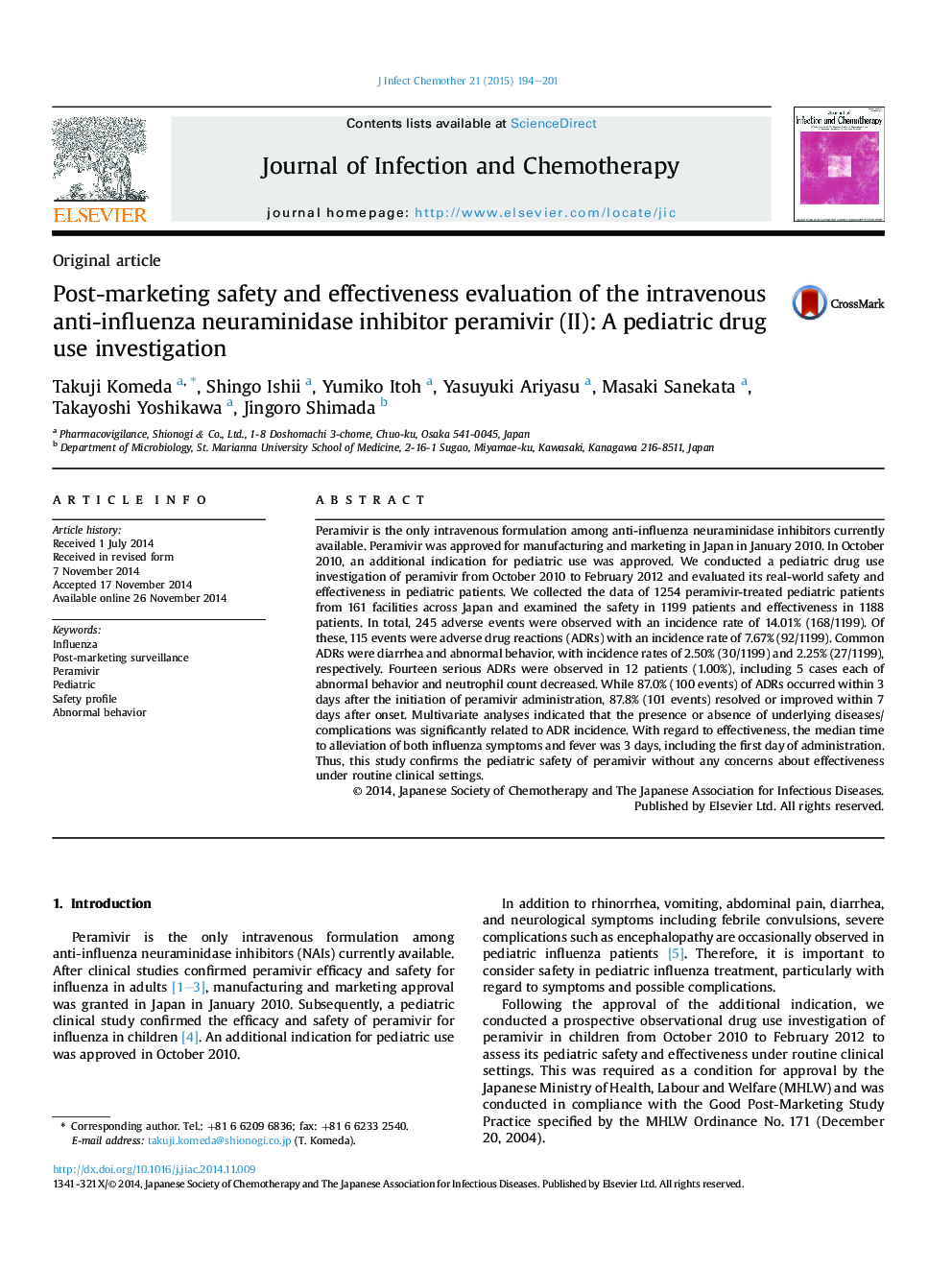| Article ID | Journal | Published Year | Pages | File Type |
|---|---|---|---|---|
| 3376897 | Journal of Infection and Chemotherapy | 2015 | 8 Pages |
Peramivir is the only intravenous formulation among anti-influenza neuraminidase inhibitors currently available. Peramivir was approved for manufacturing and marketing in Japan in January 2010. In October 2010, an additional indication for pediatric use was approved. We conducted a pediatric drug use investigation of peramivir from October 2010 to February 2012 and evaluated its real-world safety and effectiveness in pediatric patients. We collected the data of 1254 peramivir-treated pediatric patients from 161 facilities across Japan and examined the safety in 1199 patients and effectiveness in 1188 patients. In total, 245 adverse events were observed with an incidence rate of 14.01% (168/1199). Of these, 115 events were adverse drug reactions (ADRs) with an incidence rate of 7.67% (92/1199). Common ADRs were diarrhea and abnormal behavior, with incidence rates of 2.50% (30/1199) and 2.25% (27/1199), respectively. Fourteen serious ADRs were observed in 12 patients (1.00%), including 5 cases each of abnormal behavior and neutrophil count decreased. While 87.0% (100 events) of ADRs occurred within 3 days after the initiation of peramivir administration, 87.8% (101 events) resolved or improved within 7 days after onset. Multivariate analyses indicated that the presence or absence of underlying diseases/complications was significantly related to ADR incidence. With regard to effectiveness, the median time to alleviation of both influenza symptoms and fever was 3 days, including the first day of administration. Thus, this study confirms the pediatric safety of peramivir without any concerns about effectiveness under routine clinical settings.
